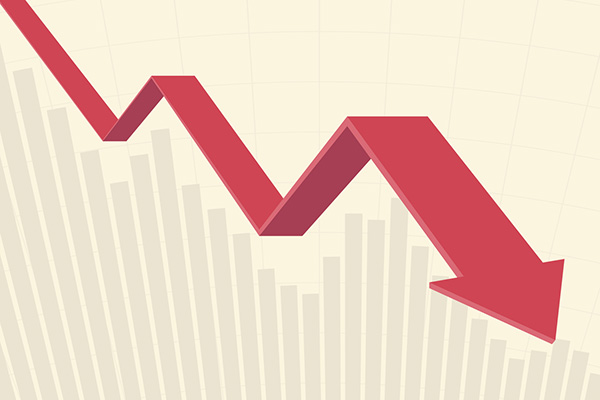US trades temporarily suspended, as shares tumble
Coronavirus continues to cause market volatility, with trades in the US market temporarily suspended.
9th March 2020 15:39
by Tom Bailey from interactive investor
Coronavirus continues to cause market volatility, with trades in the US market temporarily suspended.

Coronavirus continues to cause market volatility, with trades in the US market temporarily suspended.
On opening the S&P 500 fell by 7%. As a result, the market’s “circuit breaker” was triggered, leading to a 15-minute suspension of trading. At the time of writing US stocks have recovered slightly but are still down by over 6% since opening. Year-to-date the index is down around 8%.
The next threshold for the circuit breaker to be triggered is 13% from opening, which will result in another 15-minute suspension (unless the drop comes after 3.25pm EST, after which point the circuit break will not be triggered).
There is also a third level of the circuit breaker, which would be triggered should the S&P 500 fall by 20% from its opening level. In the event of this, trading is halted for the rest of the day.
Circuit breakers are generally most useful for when markets are falling for technical reasons, such as during so-called “flash crashes”. With markets falling due to investors re-evaluating the prospects of global economic growth and company earnings due the spread of coronavirus, the helpfulness of the circuit breaker is less apparent.
Fears about the spread of coronavirus were also exacerbated by a large fall in the price of oil. European and Asian indices also saw large falls during trading. At the time of writing (3pm) the UK’s FTSE 100 is down just over 7% and Germany’s Dax around 7.6%. In Asia, Hong Kong’s Hang Seng closed over 4% down, Japan’s Nikkei 225 around 5% and South Korea’s KOSPI over 4%.
Government bonds, seen as a safe haven by investors, continued their rally. The yield on the US 10-year government bond now sits at just 0.52%, while 10-year gilts yield just 0.12%. Yields for German government bonds have also plummeted, with the 10-year bund sitting at -0.87%.
This article was originally published in our sister magazine Money Observer, which ceased publication in August 2020.
These articles are provided for information purposes only. Occasionally, an opinion about whether to buy or sell a specific investment may be provided by third parties. The content is not intended to be a personal recommendation to buy or sell any financial instrument or product, or to adopt any investment strategy as it is not provided based on an assessment of your investing knowledge and experience, your financial situation or your investment objectives. The value of your investments, and the income derived from them, may go down as well as up. You may not get back all the money that you invest. The investments referred to in this article may not be suitable for all investors, and if in doubt, an investor should seek advice from a qualified investment adviser.
Full performance can be found on the company or index summary page on the interactive investor website. Simply click on the company's or index name highlighted in the article.